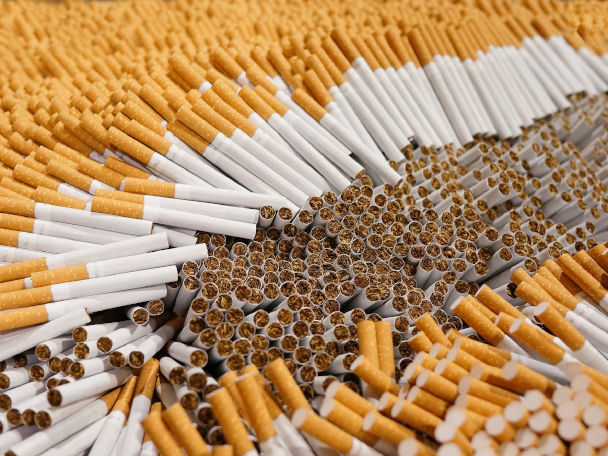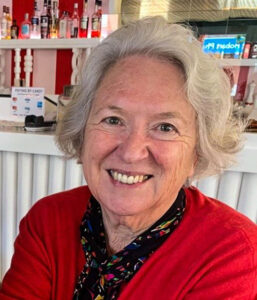Public health advocate calls on Tasmanian MPs to ban tobacco company donations

A public health researcher has called for a ban on tobacco industry donations to political parties and candidates when the House of Assembly resumes debate next week on the Rockliff Government’s bill to regulate contributions and election campaign funding.
“The tobacco industry is a rogue industry. It has been found guilty of racketeering in the USA, smuggling in Canada, misleading and deceptive conduct in Australia through the Australian Competition and Consumer Commission, and complicity in illicit trade,” said Dr Kathryn Barnsley, Adjunct Researcher at the University of Tasmania’s School of Medicine and Convenor SmokeFree Tasmania.
The Tasmanian Department of Health estimates over 550 Tasmanians die each year from the effects of smoking. “This is far more than alcohol, car crashes, illicit drugs, homicides, suicides, and fires combined,” Barnsley said.
The department’s Tobacco Action Plan commits the agency to “inform elected representatives regarding their responsibilities to adhere to the World Health Organisation Framework Convention on Tobacco Control, including not engaging with tobacco industry representatives.”
The government’s Electoral Disclosure and Funding Bill does not exclude parties or candidates receiving donations from tobacco companies or any other industry sector. New South Wales banned tobacco industry donations in 2010.
“Big tobacco is currently promoting e-cigarettes, primarily flavoured, to children and teenagers around the world and in Australia. No political party in Australia should accept funding from tobacco and vaping entities,” said Barnsley.

Dr Kathryn Barnsley, Adjunct Researcher at the University of Tasmania’s School of Medicine and Convenor SmokeFree Tasmania. Photo: supplied.
In her submission supporting a ban on tobacco donations, Barnsley included an extract from her doctoral thesis on the role of British Tobacco, which had acquired extensive landholdings in north-east Tasmania, in bringing down the Bethune minority Liberal government in 1972.
The chairman of British Tobacco and others faced charges over land deals, and the government was under intense pressure to drop the matter. At the centre of the scandal was a payment of $25,000 by British Tobacco to the sole Centre Party MP, Kevin Lyons, for his memoir. (In 2022 terms, the amount would be worth over $290,000.) Lyons, who had supported the minority Liberal government, resigned, and the government collapsed. Lyons’ memoir was never published, and it is unclear if it was written.
Last week, the Greens proposed an amendment to allow donations only from natural persons, effectively banning all corporate contributions. Labor Shadow Attorney-General, Ella Haddad moved to reduce the government’s proposed $5000 disclosure threshold to $1000. The amendments were defeated, but both parties will move further changes when the debate on the bill resumes.
“This Bill will rid the political air of the unpalatable influence of tobacco lobbyists.”
Labor Attorney-General Brian Wightman in 2012.
The prospects for significant changes to the government’s bill rest on the debate in the Legislative Council. Independent MP Meg Webb has flagged she will seek to amend the bill to ban donations from property developers, tobacco companies, liquor and gaming interests and the firearms industry.
Haddad said Labor has yet to decide its position on changes moved by other MPs. If Labor and one of the independents votes with the government in the Legislative Council, an amendment will be defeated. If five of the seven independents are joined by Labor, an amendment will pass. (By convention, the President of the Legislative Council, Labor’s Craig Farrell, usually does not vote but may be called upon to break a deadlock.)
It won’t be the first time the Legislative Council has debated a ban on donations from the tobacco industry.
Labor’s failed 2012 bid to ban tobacco funding
Attorney-General Brian Wightman introduced amendments to the Electoral Act in October 2012, which included a clause to ban political donations by tobacco companies. He told parliament that a ban was “in both the interests of the health of Tasmanians and in the interests of removing the potential for tobacco companies to influence the direction taken by political parties, candidates and members”.
“This Bill will rid the political air of the unpalatable influence of tobacco lobbyists.”
Earlier that year, the annual financial returns submitted to the Australian Electoral Commission revealed donations to the Tasmanian Liberal Party of $22,000 from British American Tobacco and almost $16,000 from Phillip Morris.
Liberal MPs opposed the tobacco provision, arguing it was a politically motivated attack on a political opponent. Jeremy Rockliff argued that if the bill were about banning donations from “bad or socially undesirable sources … then it would surely be seeking to ban donations from other harmful sources such as gambling organisations and liquor companies.” The Liberal party didn’t move amendments to ban gambling and other donations but opposed the clause outright.
While Wightman’s bill passed the House of Assembly with the support of the Greens, the Liberals’ arguments found a more receptive audience in the Legislative Council on the clause seeking to ban tobacco money. Nearly all members criticised the bill for singling out the tobacco industry but not other sectors such as gambling and alcohol. The clause was defeated.
Despite the public controversy, the Tasmanian Liberal party continued to accept tobacco donations after Wightman’s bill was defeated, with Philip Morris contributing $11,000 in July 2013.
Dogged by controversy over the issue, in September 2013, the Leader of the Opposition, Tony Abbott, directed the party to stop accepting tobacco funds. The Tasmanian Greens have never received tobacco donations, and the Labor party banned them in 2004.
But the voluntary ban instituted by Abbott on tobacco donations to the Liberal party is far from watertight. Earlier this year, ABC’s Four Corners program revealed how Brian Marlow, the director of Legalise Vaping Australia, contributed $44,000 to the NSW branch of the Liberal party as personal contributions. Marlow confirmed the money came from a fund established by Legalise Vaping Australia.
State Director of the Tasmanian Liberal party, Peter Coulson, told Tasmanian Inquirer the ban on tobacco company donations remains in place and includes the vaping industry. Haddad said she assumed Labor’s ban on tobacco donations also included the vaping industry. Labor State Secretary Stuart Benson confirmed the vaping industry is included in Labor’s ban on tobacco donations.
A NSW lobbying firm, Strategic Political Counsel, which lists British American Tobacco as one of its clients, emerged in 2019 as the largest donor to the Queensland branch of Pauline Hanson’s One Nation party. In mid-2018, the libertarian Liberal Democratic Party received $40,000 from Philip Morris. The National Party of Australia, the Liberals’ federal coalition partner, continues to receive tobacco donations, with Philip Morris contributing $55,000 in November 2020.
Barnsley said a legislated ban is required as the current ‘soft ban’ on tobacco company donations has not been effective. “Another political party, which continues to receive donations from the tobacco industry, has attempted to gain seats in the Tasmanian Parliament and may succeed in future,” she said, referring to the National Party.
Note: After this article was initially published, Labor State Secretary Stuart Benson confirmed the vaping industry is included in Labor’s ban on tobacco donations. The article was updated to reflect this.
 @BobBurtonoz
@BobBurtonoz